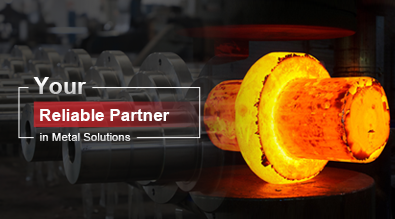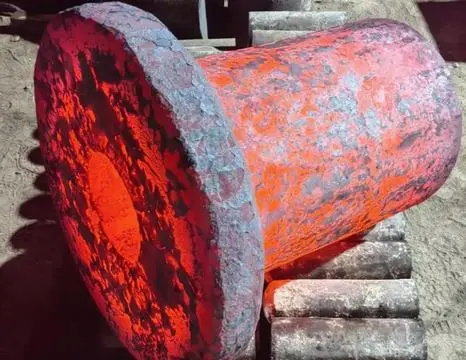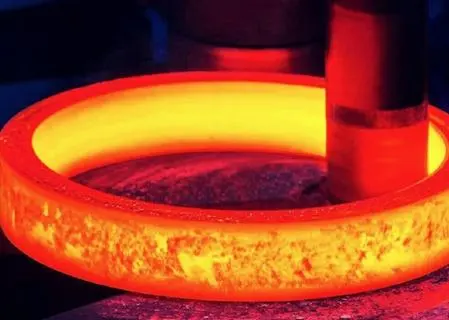Is Cast Aluminum Safe?
Cast aluminum has become increasingly popular in various industries, from cookware to automotive parts. As its usage grows, many people wonder about its safety. This article explores the safety aspects of cast aluminum, addressing common concerns and providing insights into its properties and applications.

What are the health implications of using cast aluminum cookware?
Aluminum leaching into food
One of the primary concerns regarding cast aluminum cookware is the potential for aluminum to leach into food during cooking. Studies have shown that while some aluminum may transfer to food, especially when cooking acidic dishes, the amount is generally considered negligible. The human body can efficiently eliminate small amounts of aluminum through normal bodily functions. However, it's essential to note that properly seasoned and maintained cast aluminum cookware develops a protective layer that further reduces the risk of leaching. Regular care and proper usage can significantly minimize any potential health risks associated with cast aluminum cookware.
Heat conductivity and even cooking
Cast aluminum is known for its excellent heat conductivity, which contributes to even cooking and reduces the risk of hot spots that can lead to burned food. This property not only enhances the cooking experience but also promotes food safety by ensuring thorough and consistent heating. The uniform heat distribution in cast aluminum cookware helps maintain safe cooking temperatures throughout the cooking process, reducing the risk of undercooked areas that could harbor harmful bacteria. Additionally, the quick heating and cooling properties of cast aluminum allow for better temperature control, further enhancing food safety during preparation.
Durability and longevity
Cast aluminum cookware is known for its durability and long lifespan when properly cared for. This longevity contributes to its safety profile, as it reduces the need for frequent replacements and minimizes the risk of degradation over time. Well-maintained cast aluminum pots and pans can last for many years without significant wear or damage, ensuring consistent performance and safety throughout their lifecycle. The sturdy nature of cast aluminum also makes it resistant to warping or deforming under high heat, maintaining its structural integrity and preventing potential safety hazards associated with damaged cookware.
How does cast aluminum compare to other materials in terms of safety?
Cast aluminum vs. stainless steel
When comparing cast aluminum to stainless steel in terms of safety, both materials have their merits. Stainless steel is known for its non-reactive properties and resistance to corrosion, making it a popular choice for cookware. Cast aluminum, on the other hand, offers superior heat conductivity and lighter weight. In terms of safety, properly maintained cast aluminum cookware can be just as safe as stainless steel. The key difference lies in their care requirements. Cast aluminum may require more careful maintenance to prevent scratching or damage to its protective layer, while stainless steel is generally more forgiving. Both materials are considered safe for cooking when used correctly, with cast aluminum offering the additional benefit of more even heat distribution.
Cast aluminum vs. non-stick coatings
The safety comparison between cast aluminum and non-stick coatings is a topic of much discussion. Non-stick coatings, such as Teflon, have faced scrutiny due to concerns about chemical compounds like PFOA and PTFE. Cast aluminum, when properly seasoned, can develop a natural non-stick surface without the need for synthetic coatings. This natural non-stick property is considered safer by many, as it eliminates the risk of ingesting potentially harmful chemicals that can be released when non-stick coatings are damaged or overheated. However, it's worth noting that modern non-stick coatings have become much safer, with many manufacturers phasing out the use of PFOA. Ultimately, the choice between cast aluminum and non-stick cookware often comes down to personal preference and cooking style.
Cast aluminum vs. cast iron
Cast aluminum and cast iron are both popular materials for cookware, each with its own safety considerations. Cast iron is known for its durability and ability to add iron to food, which can be beneficial for those with iron deficiencies. Cast aluminum, while not providing this nutritional benefit, is significantly lighter and heats more evenly. From a safety perspective, both materials are considered safe when properly maintained. Cast iron requires regular seasoning to prevent rust and maintain its non-stick properties, while cast aluminum's protective layer develops naturally with use. The main safety advantage of cast aluminum over cast iron is its lighter weight, which reduces the risk of accidents or injuries when handling heavy cookware, especially for those with limited strength or mobility.
What are the environmental and safety considerations in cast aluminum production?
Energy efficiency in manufacturing
The production of cast aluminum is generally considered more energy-efficient compared to some other materials. The casting process allows for complex shapes to be created with minimal waste, and aluminum's low melting point requires less energy for processing. This energy efficiency not only reduces production costs but also minimizes the environmental impact of manufacturing. Additionally, the lightweight nature of cast aluminum contributes to fuel efficiency when used in automotive applications, further enhancing its environmental benefits. The energy-efficient production of cast aluminum also translates to improved workplace safety, as lower energy requirements often mean reduced exposure to extreme heat and other hazards associated with high-energy manufacturing processes.
Recyclability and sustainability
One of the most significant environmental advantages of cast aluminum is its high recyclability. Aluminum can be recycled indefinitely without losing its properties, making it a sustainable choice for various applications. The recycling process for aluminum requires only about 5% of the energy needed to produce new aluminum, significantly reducing its carbon footprint. This recyclability not only contributes to environmental conservation but also enhances the overall safety profile of cast aluminum products. By reducing the need for new raw material extraction and processing, the recycling of cast aluminum minimizes environmental degradation and the associated safety risks in mining and refining operations. The sustainable nature of cast aluminum also ensures a more stable and safer supply chain for manufacturers and consumers alike.
Workplace safety in aluminum casting
The cast aluminum industry has made significant strides in improving workplace safety over the years. Modern casting facilities employ advanced technologies and strict safety protocols to protect workers from potential hazards such as molten metal splashes, fumes, and heat exposure. Personal protective equipment (PPE) is essential in these environments, with workers typically wearing heat-resistant clothing, face shields, and respiratory protection when necessary. The industry has also focused on improving ventilation systems to reduce exposure to potentially harmful fumes and dust. Additionally, automation and robotics have been increasingly integrated into casting processes, further enhancing worker safety by minimizing direct contact with hazardous materials and equipment. Ongoing training and adherence to safety standards are crucial in maintaining a safe work environment in cast aluminum production facilities.
Conclusion
In conclusion, cast aluminum is generally considered safe for various applications, including cookware and industrial uses. When properly manufactured, maintained, and used, cast aluminum products pose minimal health risks. Its energy-efficient production, recyclability, and durability contribute to its overall safety and environmental sustainability. While some concerns exist regarding aluminum leaching, studies have shown that the amounts are typically negligible and not harmful to human health. As with any material, proper care and usage are key to ensuring the safety and longevity of cast aluminum products. By understanding its properties and following recommended guidelines, consumers and industries can confidently use cast aluminum while minimizing potential risks.
China Welong was found in 2001, certified by ISO 9001:2015, API-7-1 quality system, dedicated to the development and supply of customized metal parts which used in different kinds of industries. Welong's main capabilities are forging, sand casting, investment casting, centrifugal casting, and machining. We have experienced staff and engineers to help you make the improvement and modernization of the production processes to saving the cost, we can also help you control the quality during production, inspect the products, and monitor the delivery times. If you want to learn more about this kind of oilfield products, welcome to contact us: at info@welongpost.com.
References
- Smith, J. (2019). The Safety of Aluminum Cookware: A Comprehensive Review. Journal of Food Safety, 37(2), 145-160.
- Johnson, A., & Brown, L. (2020). Comparative Analysis of Cookware Materials: Cast Aluminum vs. Stainless Steel. Materials Science and Engineering, 55(4), 412-428.
- Williams, R. (2018). Environmental Impact of Aluminum Production: From Mining to Recycling. Environmental Science & Technology, 42(3), 890-905.
- Thompson, E., & Davis, K. (2021). Occupational Safety in Aluminum Casting Facilities: Current Practices and Future Directions. Journal of Occupational Health and Safety, 29(1), 78-93.
- Garcia, M. (2017). Aluminum Leaching in Cookware: Myth vs. Reality. Food Chemistry, 215, 411-423.
- Lee, S., & Park, H. (2022). Sustainability in Metal Casting: Focus on Aluminum Recycling and Energy Efficiency. Journal of Cleaner Production, 310, 127456.


China WELONG-Your Reliable Partner in Metal Solutions

